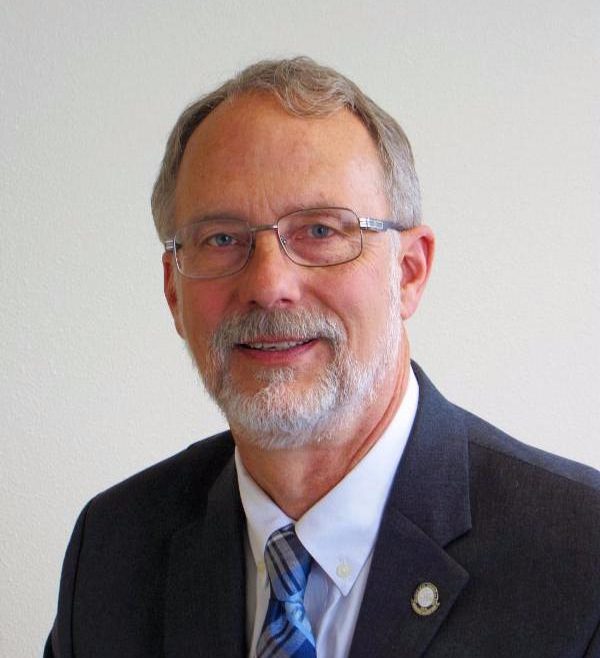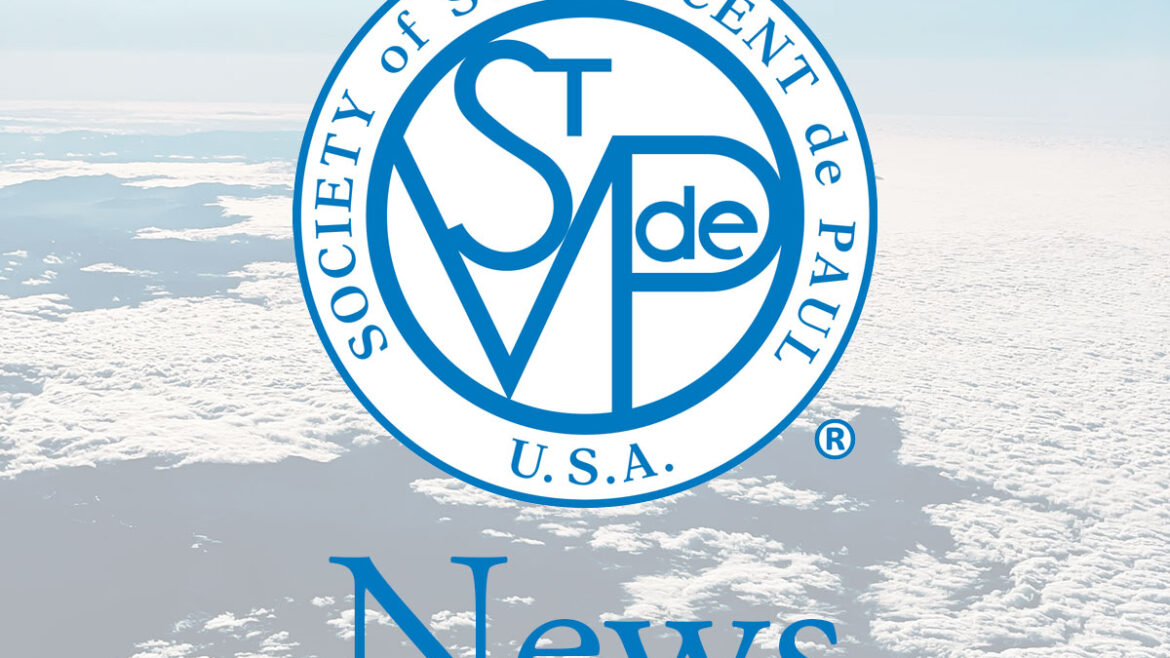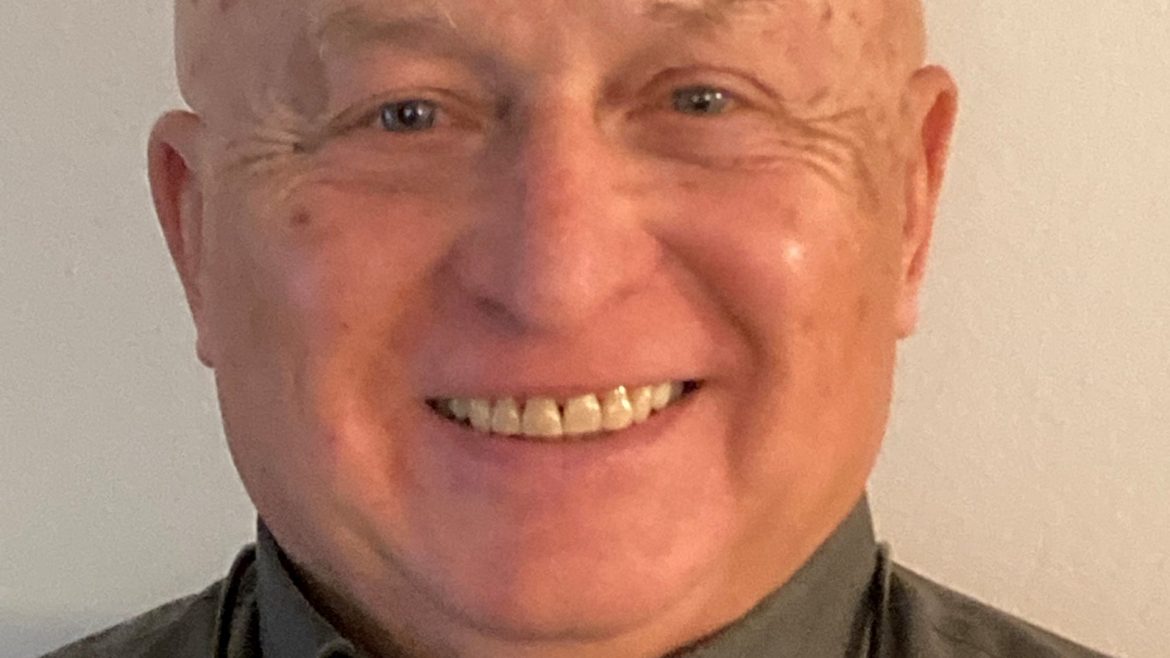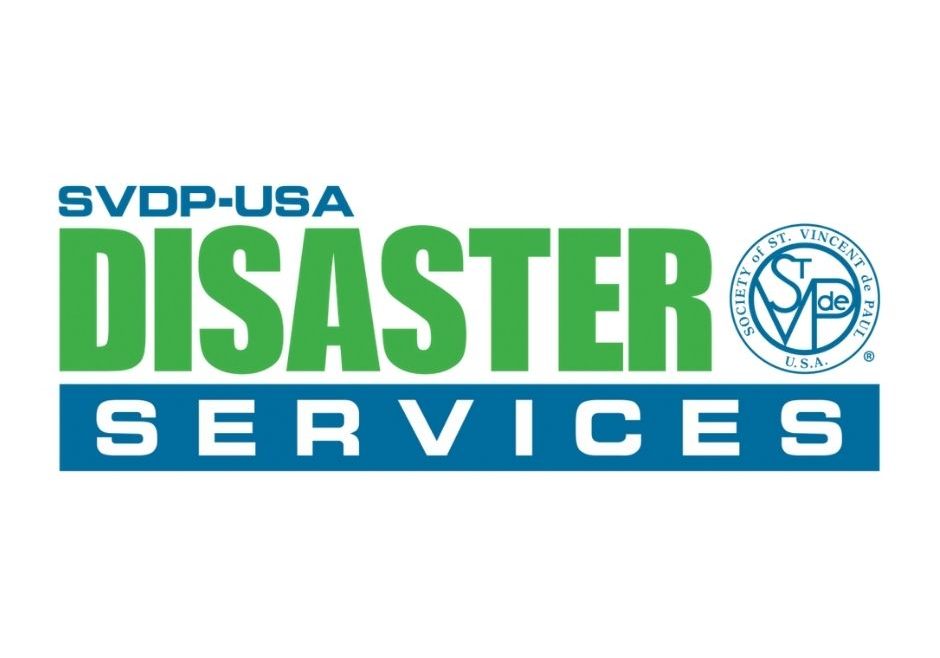The sun burned bright in St. Louis on June 11, with temperatures nearing 100 degrees. But it paled in comparison to the outpouring of faith and friendship that flowed out of the National Council office during the dedication of our new headquarters at 66 Progress Parkway.
Though staff began working from the building shortly after its purchase last summer, the pandemic had prevented the larger SVdP community from visiting until now. The day marked a joyous reunion, as Board members and staff came together in person after a year a half filled with many Zoom meetings and a fair amount of uncertainty.
National Council President Ralph Middlecamp noted that the building actually opened in March 2020, but due to COVID restrictions, no one could enter for many weeks.
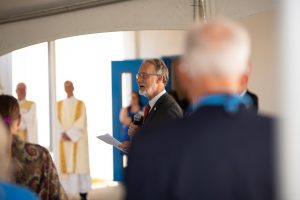
Once it was safe to enter last summer (socially distant and with masks), a team of staff members, led by Chief Operating Officer Nancy Pino, worked tirelessly to create a space that is reflective of Vincentian values. “Our goal when designing our new space was not only to make it a productive, comfortable, and welcoming environment for our staff, but for all Vincentian visitors,” she said. “The History Wall and Chapel help express the story of beginnings, who we are, and who we aspire to become.”
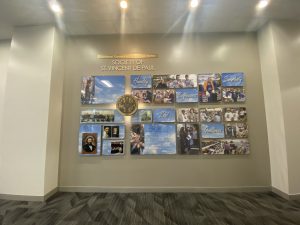
President Ralph Middlecamp and CEO Dave Barringer welcomed guests to the new headquarters, then Spiritual Advisor Bishop Donald J. Hying and Deacon John Heithaus of the Archdiocesan Council of St. Louis performed the first Mass in the National Council Chapel. Said Barringer, “We have intentionally designed the building to reflect the Society’s mission. Upon entry through our front door, within 25 feet you will see our logo, a statue of St. Vincent de Paul, our Mission statement, a video of Society activities, a wall dedicated to our history and values, and a chapel. Yes, we want to lead with our faith, so a chapel space was forefront in our design plans.”
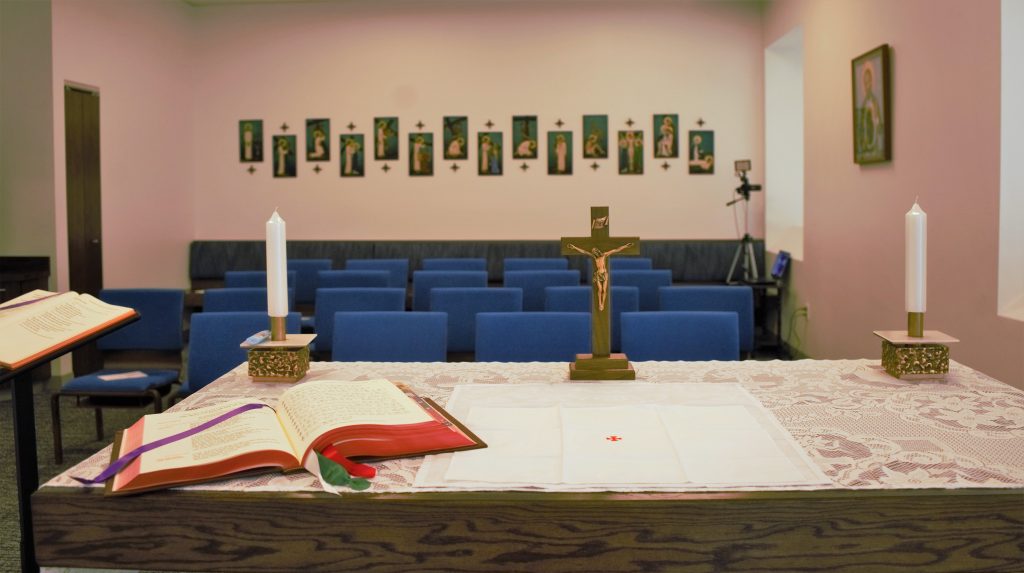
Middlecamp was pleased with what the National Council team was able to accomplish. “Our new National Office provides a well-designed space for our staff and volunteers as we serve those who serve our neighbors in need,” he said. “It is attractive and functional, and we were able to make the move without any fundraising or decrease in support for the programs we offer. What a great new beginning for us as we look to the future after these months of isolation.”
As a special surprise, the day’s celebration included the dedication of the new Sr. Kieran Library, a fitting tribute to the National Council’s long-time Director of Formation, who gave so much to the Society. Current Director of Formation Tim Williams had this to say: “Friday’s Open House, Mass, and dedication of the new building seemed like a perfect way for us to emerge from the pandemic, and begin our return to in-person meetings. For me, personally, it was a great joy to see the unmasked smile of my predecessor and dear friend, Sister Kieran Kneaves, when we unveiled the name of our new Vincentian library, dedicated to her and to the many years she served us all in this vocation!”
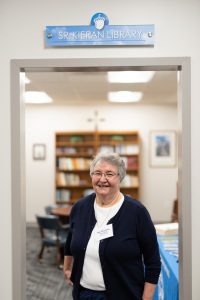 True to the Vincentian value of prudence, the National Council did not use any dollars from member services to purchase the new building, which was funded through the sale of our old building and judicious savings of bequest funds over time. “Our most loyal donors contributed mightily to this day. We thank them,” Middlecamp said.
True to the Vincentian value of prudence, the National Council did not use any dollars from member services to purchase the new building, which was funded through the sale of our old building and judicious savings of bequest funds over time. “Our most loyal donors contributed mightily to this day. We thank them,” Middlecamp said.
The new building will serve as a space for collaboration, faith, and friendship for the Society’s 100,000 Vincentian volunteers and the staff who support them, providing the technology and space to sustain our work now and well into the future. In his remarks, Barringer said, “To not only our staff, but also to our Board of Directors, and our Society members, Welcome Home!”




